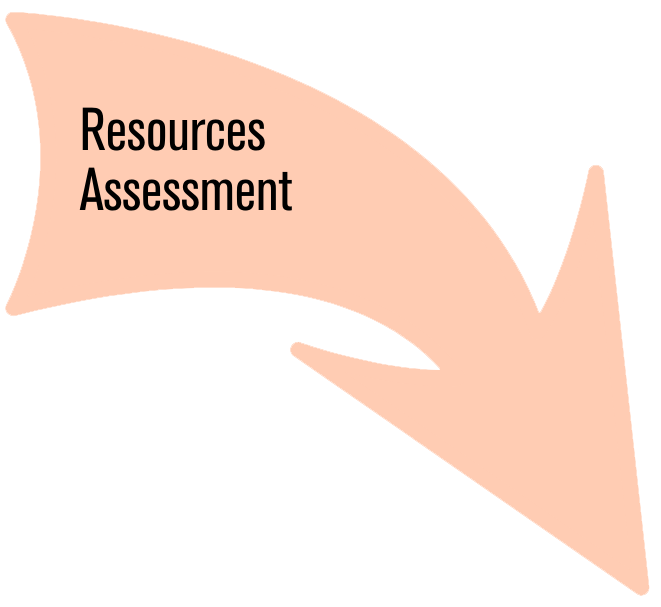Accelerating the Implementation of Renewable Energy – protocol
Overview
Why focus on municipal governments? Isn’t renewable energy development outside of their mandate?
- They have a mandate for community development, and renewable energy is a pathway to sustained and sustainable local prosperity. For more details, see this recent work led by Rob Kerr, a Senior Associate at QUEST, as well as recent reports from the University of Alberta and Pembina Institute.
- The transition toward renewable energy systems, and distributed energy resources more broadly, has already been set in motion by market forces and technology advancements. This transition is calling into question very basic assumptions about urban design and local land-use planning – e.g., designing a neighborhood to run on fossil fuels is very different from designing a neighborhood to run on renewable energy systems such as solar energy and/or district heating and/or battery storage (see McVey et al., 2017). Municipalities will need to respond to this market shift. We are advocating for a proactive approach.
- Municipalities have purview over approximately 60% of all greenhouse gas emissions, either through direct control (e.g., in terms of their own buildings and vehicle fleet) or through indirect control (e.g., land-use planning). Finding ways to accelerate the implementation of renewable energy is about taking local action on a global problem, while reaping economic benefits and enhancing local resilience.
What can municipalities do to accelerate the implementation of renewable energy?
Municipalities can play one of two roles in accelerating the implementation of renewable energy: as an implementer of projects, through project development and investment; or as a facilitator of projects, through regulatory support and capacity-building efforts. The action items that we identify below are meant to support municipalities in either, or both, of those roles to:
- Develop a comprehensive approach to municipal support in renewable energy development, ranging from direct implementation to indirect facilitation of projects
- Conduct resources assessments to identify and communicate opportunities for renewable energy development in your community
- Undertake community and stakeholder engagement to raise awareness and address concerns related to these opportunities
- Audit land-use plans and regulations to identify barriers to RE development, and undertake reforms that manage RE development in the public interest
- Support cross-sector implementation by developing and engaging in partnerships that leverage shared resources and drive innovative projects
These action items are not sequential. As you’ll see below, we conceptualize these action items as part of a collection of moving parts that need to be operating in unison to break down structural barriers and ensure that the implementation of renewable energy is rapid and responsible. Click a component on the figure below to find resources that will guide you in undertaking the specific action item. Each section is written as a stand-alone piece to ‘meet you where you are’ – i.e., to provide support at whatever action item you feel is a priority in your own community.
Supplementary and Complementary Resources
Federation of Canadian Municipalities, 2020. Green Municipal Fund Municipal Energy Roadmap
The Federation of Canadian Municipalities (FCM) “has been the voice of municipal government since 1901.” FCM’s membership is made up of communities and provincial and territorial municipal associations. The organization advocates for municipalities to ensure local needs are represented in federal policies and programs. FCM has a range of tools and programming to enhance municipal capacity to provide citizens with a high quality of life. The Municipal Energy Roadmap is one of these tools. The report meets municipalities where they are at and provides specific guidance on solutions to reduce GHG emissions in local buildings and ways to meet broader sustainability goals. All this is framed under an umbrella of improving quality of life for residents, including job creation, the economy and a healthy environment. FCM highlights 5 main ways the municipality may find the roadmap useful:
- Recognize the most impactful solutions for reducing emissions
- Explore technologies and strategies that reduce project costs and strengthen the local economy
- Gain a greater understanding of the business case and other considerations for projects
- Learn about case studies, funding and other resources that make it easier to implement renewable energy
- Prioritize efforts and find projects or initiatives that can be implemented immediately
Federation of Canadian Municipalities, 2020. Municipalities for Climate Innovation Program: Maturity Scale for Municipal GHG Emissions Reductions
The Maturity Scale for Municipal GHG Emissions Reductions was created to help municipalities identify opportunities to improve local capacity to reduce emissions. Users can self-assess their competency level in three categories: policy, human resources and governance and technical and risk management capacity. Competency in each category is assessed based on performance in several sub-indicators of performance. Users can evaluate emissions reduction skills and knowledge, break down large reduction projects into smaller components and track progress and outcomes. Communities that receive Municipalities for Climate Innovation Program (MCIP) funding are required to use this scale to report on their progress. AIRE extends the discussion of renewable energy implementation from a narrow focus on technical and economic aspects to also include municipal policy that may inhibit or facilitate projects. This FCM scale is an excellent way for municipalities to assess GHG emissions and identify opportunities to make reductions. Renewable energy, along with energy efficiency initiatives, are two such ways to reduce emissions, so this tool may lead to insights about the broader policy-context that renewable energy projects would fit within. Municipalities can identify areas where renewable energy may lead to emissions reductions and use that information to create a policy context favourable to implementation.
Natural Resources Canada. RETScreen
Natural Resources Canada (NRCan) is a federal body committed to ensuring the country’s natural resources are developed sustainably and responsibly. NRCAN has a series of tools and resources posted on its website to help people find information they need about Canada’s resource sector. The RETScreen® is one of these tools. RETScreen® is a clean energy management software system that gives users insights about energy efficiency and renewable energy project feasibility as well as ongoing energy performance. The software allows users to rapidly identify and assess the technical and financial feasibility of clean energy. It can also be used to measure and test performance metrics once a project is installed. Visitors to the site are able to access RETScreen Expert which is a premium version of the software, for free. A short video gives viewers a quick, plain language introduction to the software and it can be used. This free tool may be useful for municipal staff interested in pursuing renewable energy but that may have limited financial resources to hire a consultant. AIRE recognizes the importance of having a strong understanding of the technical and financial aspects of renewable energy, so this online resource can be a starting point for conversations about clean energy.
National Renewable Energy Laboratory, n.d. System Advisory Model (SAM)
The National Renewable Energy Laboratory (NREL) is an entity owned by the United States Department of Energy. NREL works to transform energy systems through research, development and implementation of renewable energy and efficiency projects. The SAM is a free software program that helps people make informed decisions about renewable energy. Project managers and engineers, policy analysts, technology developers and researchers are identified as potential stakeholders that may benefit from this program. The software can model an array of renewable energy technology’s performance, from residential PV installations to battery storage and geothermal heat. Financial models are also available to give insights about power purchase agreements and different ownership structures. NREL includes a webinar recording on their website which serves as a guide for how to make use of SAM. The software is fairly technical so will likely be most relevant for municipal staff with an engineering background. Data and an understanding of what is technically feasible in a community is a key part of starting conversations that will accelerate the implementation of renewable energy. This NREL resource can be the first step in identifying renewable energy technologies of interest to a municipality, and resources can then be devoted to projects of greatest priority.
National Renewable Energy Laboratory, n.d. NREL’s PVWatts Calculator
The National Renewable Energy Laboratory (NREL) is an entity owned by the United States Department of Energy. NREL works to transform energy systems through research, development and implementation of renewable energy and efficiency projects. The PVWatts Calculator is one of the tools NREL has available on their website. Users enter their home or business address and get an estimate of solar energy production and the cost of grid-connected PV systems. This resource allows municipal staff, residents, business owners, and many other stakeholders to easily find information about potential PV installations. The user-friendly calculator is not limited to American addresses which means municipalities in Canada can make use of this tool. Data and an understanding of what is technically feasible in a community is a key part of starting conversations that will accelerate the implementation of renewable energy. This NREL resource can give preliminary information about the energy production and economic implications of solar PV in a community.
Project Partners


Project Supporters


Contact Omar Farag, Senior Lead, Projects at QUEST Canada to learn more about the Accelerating Implementation of Renewable Energy project at ofarag@questcanada.org or 866-494-2770, ext. 717.





